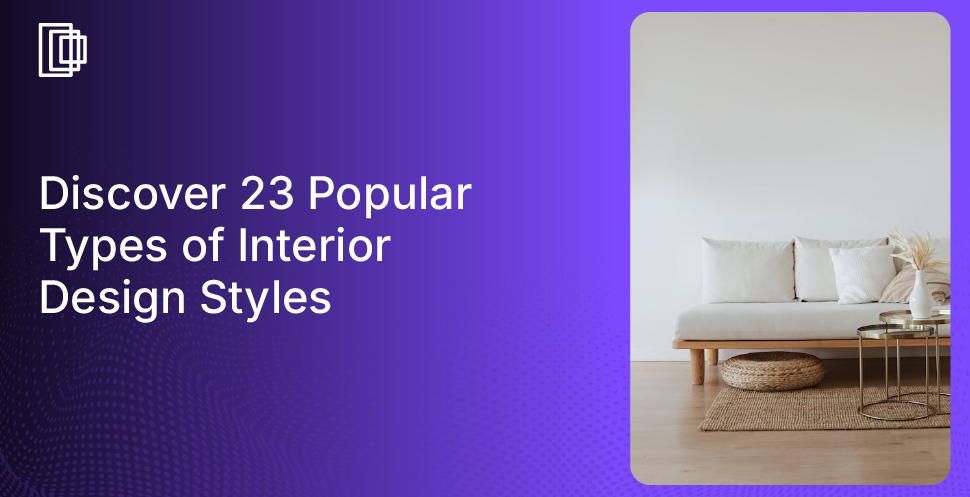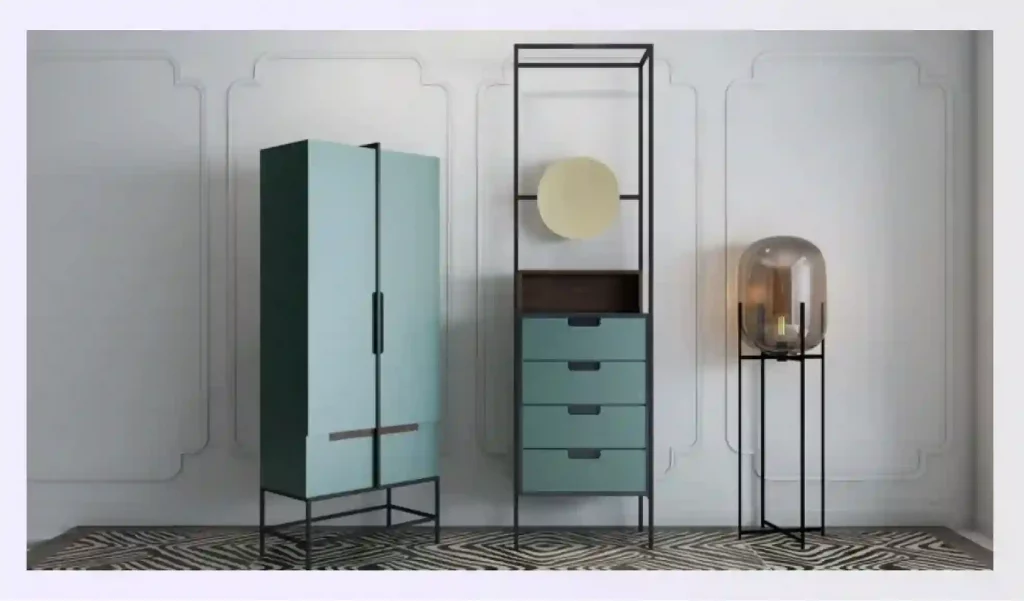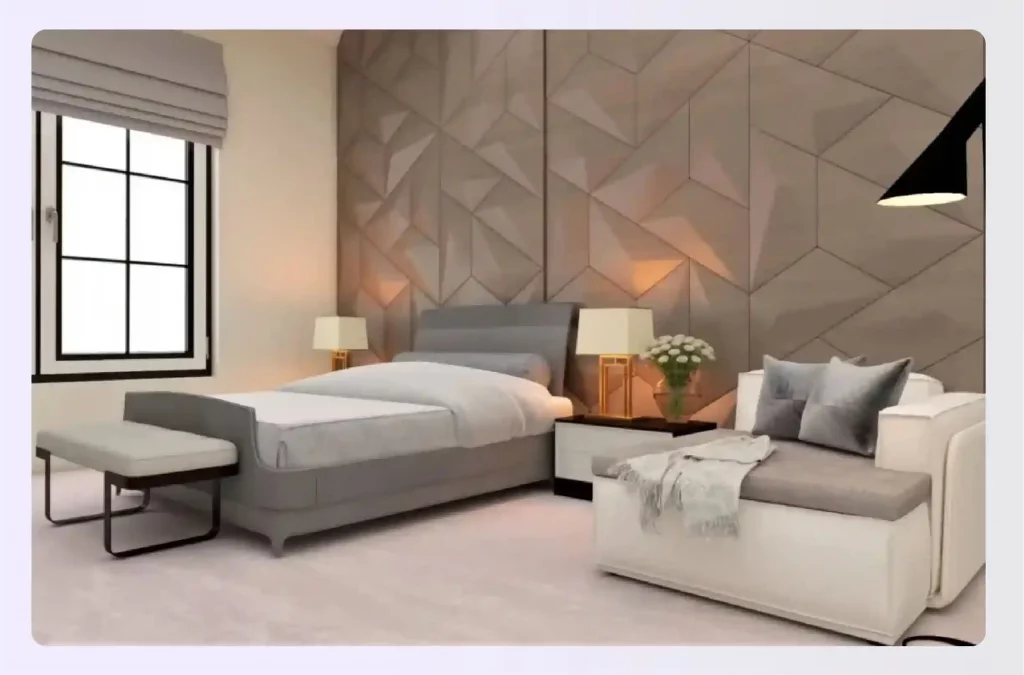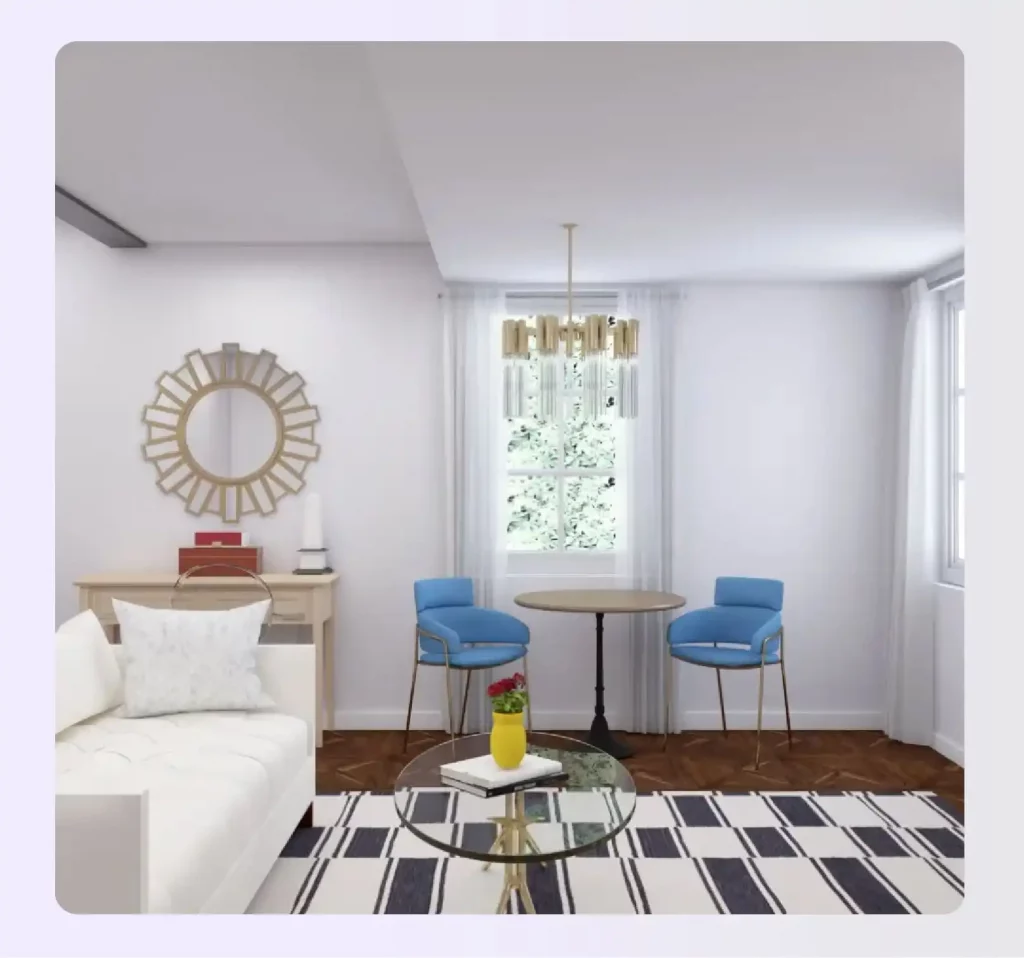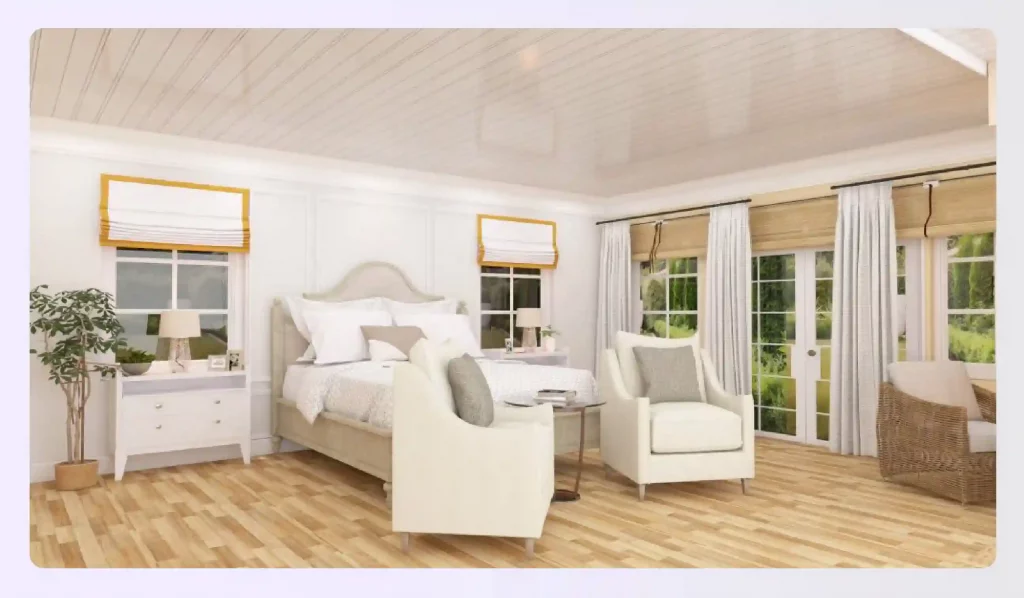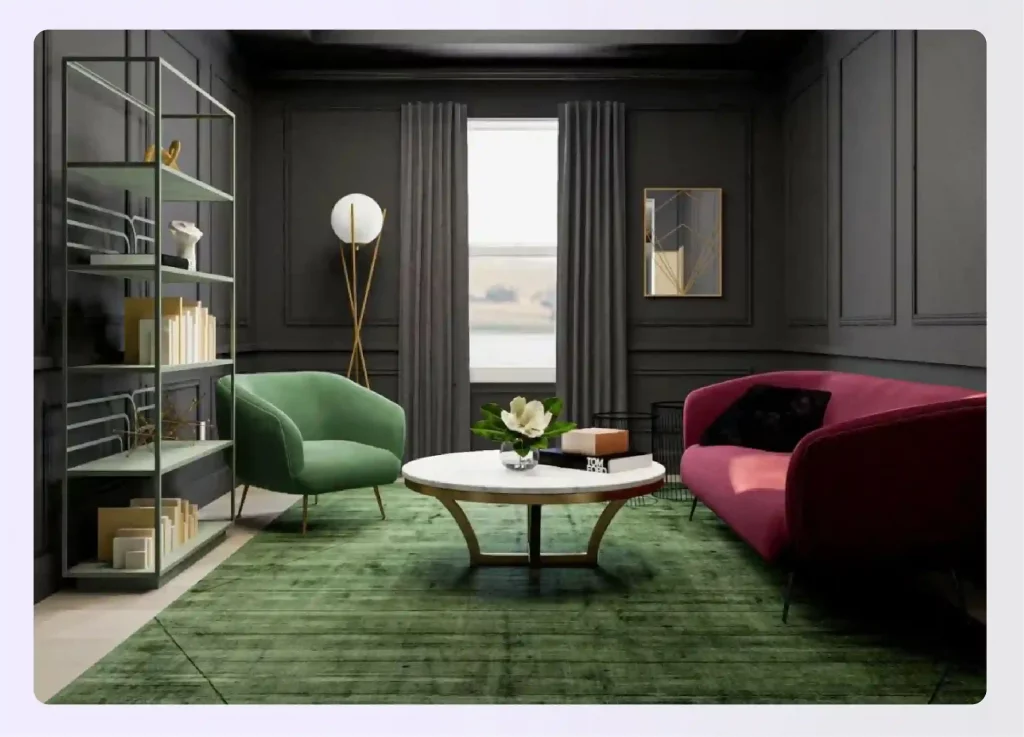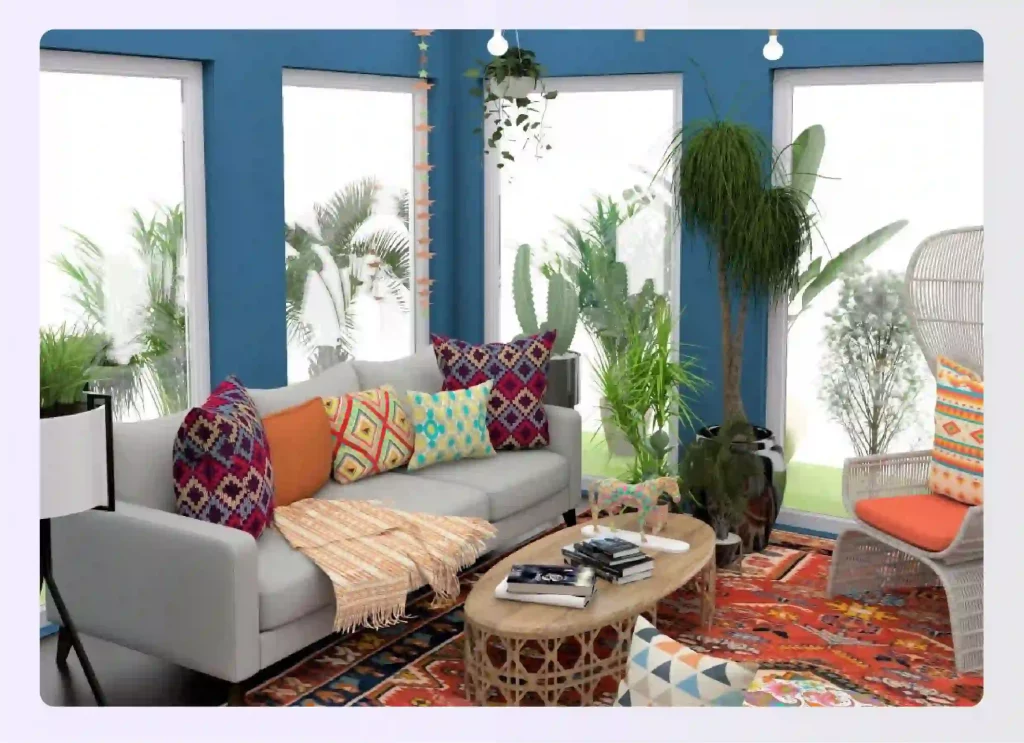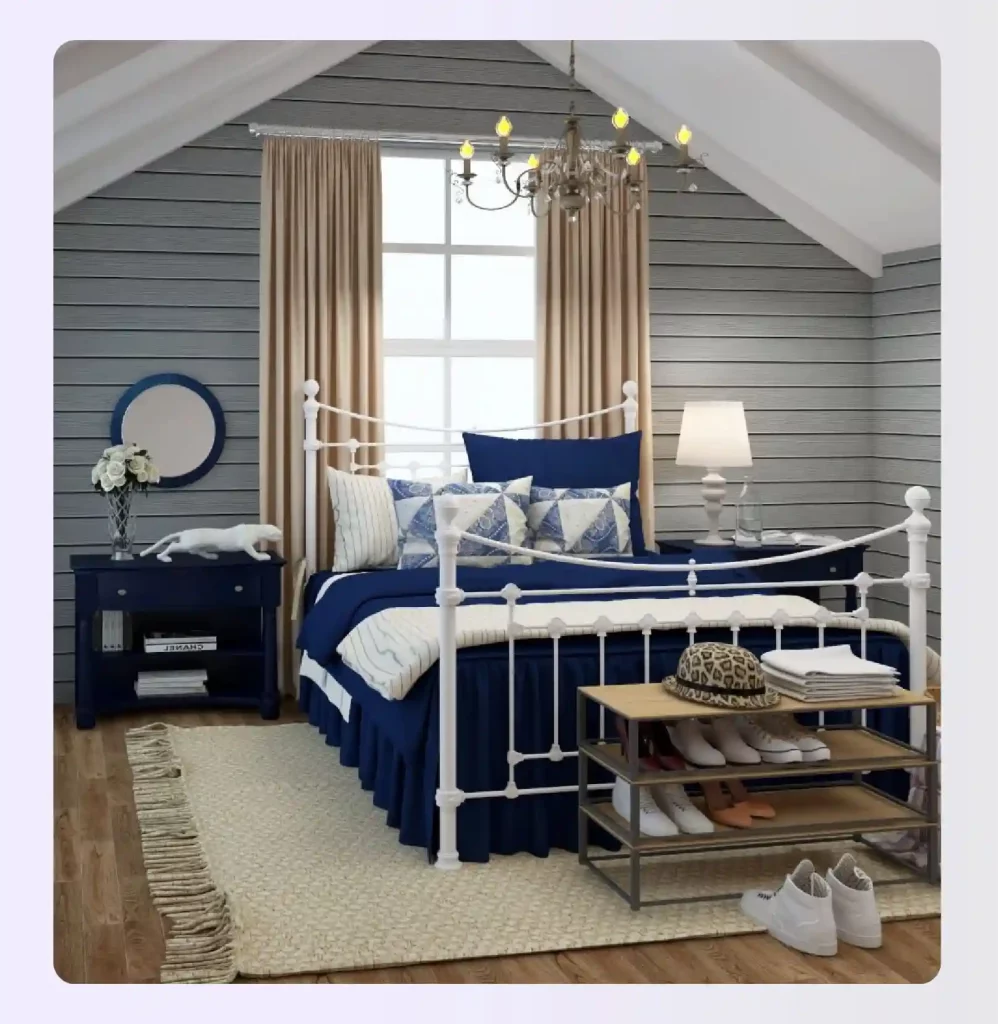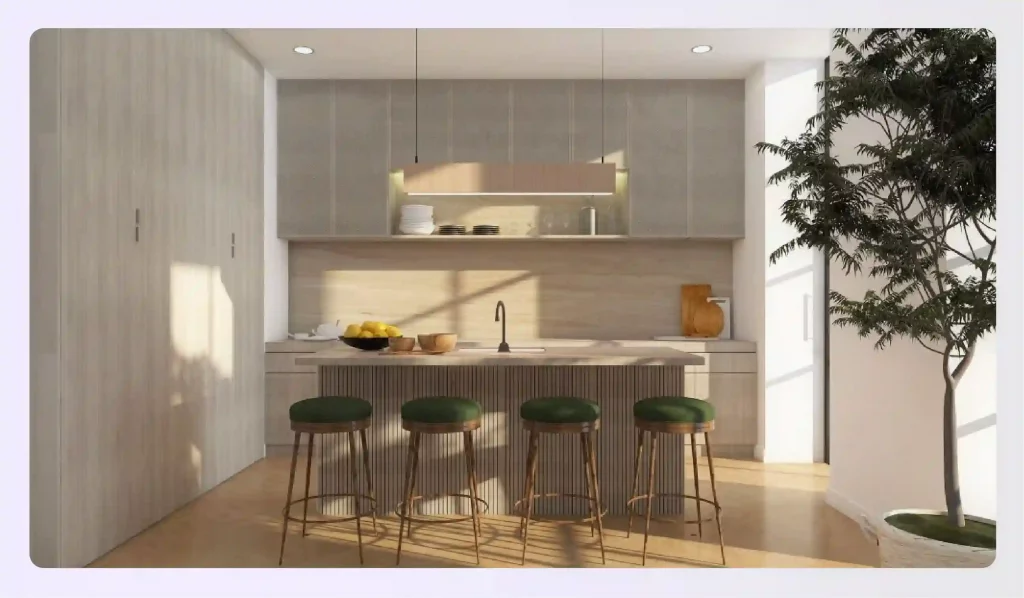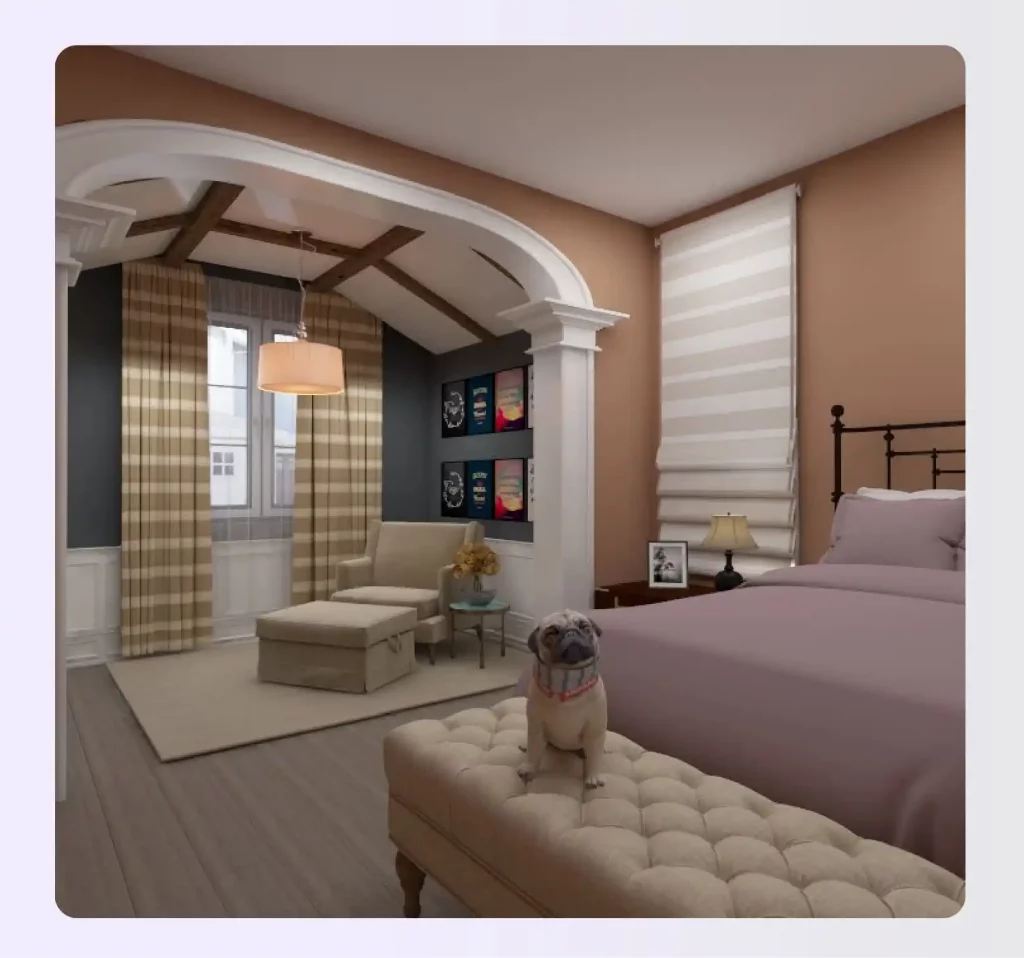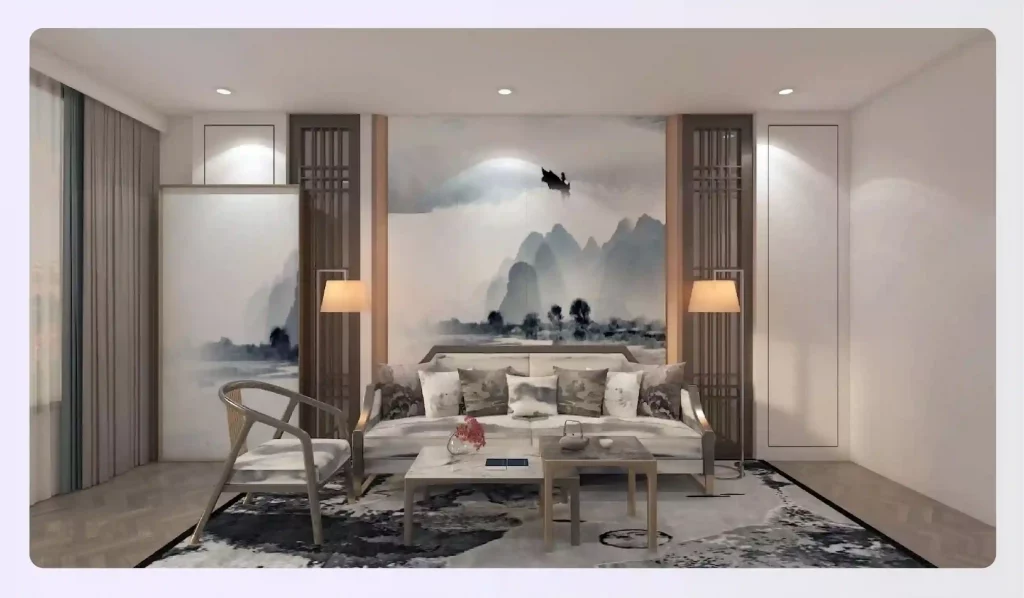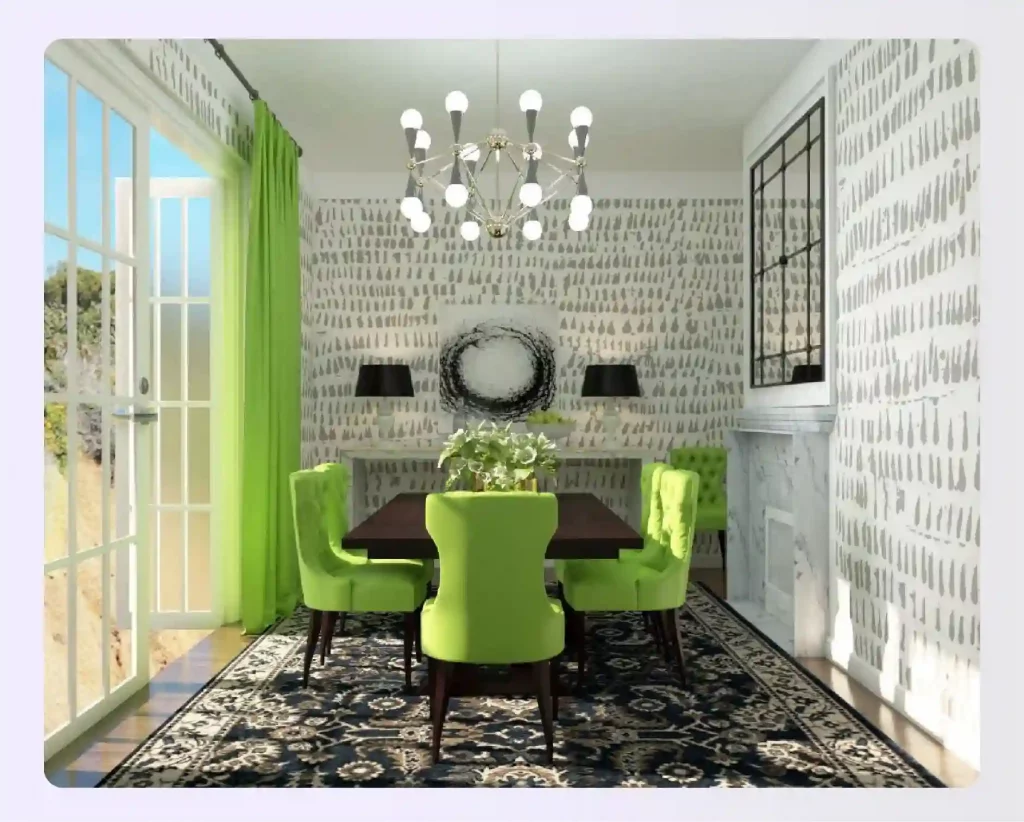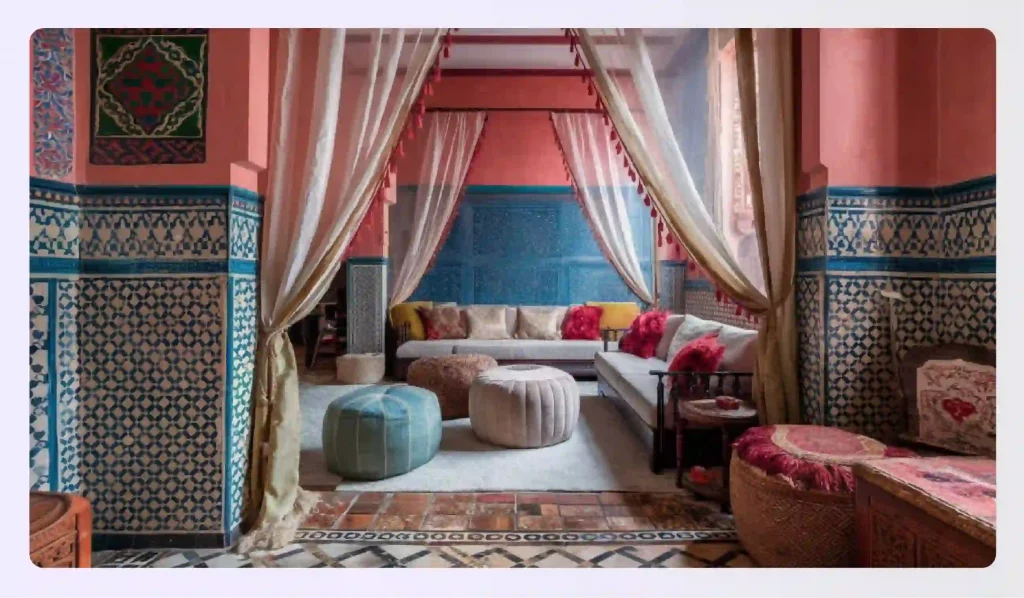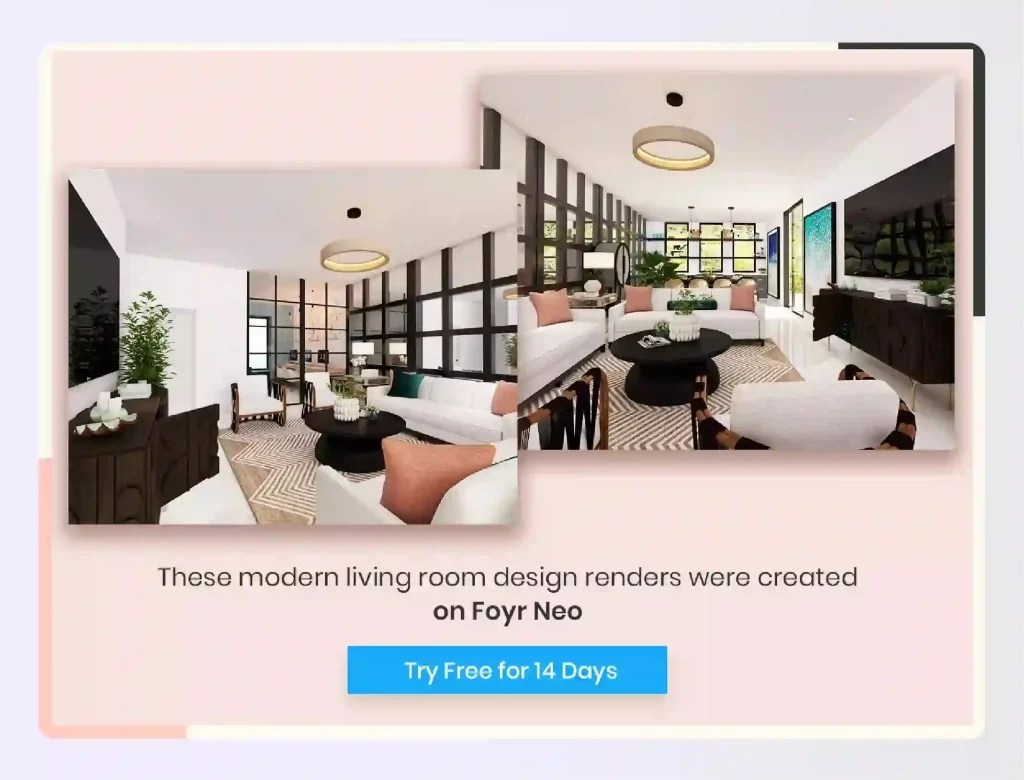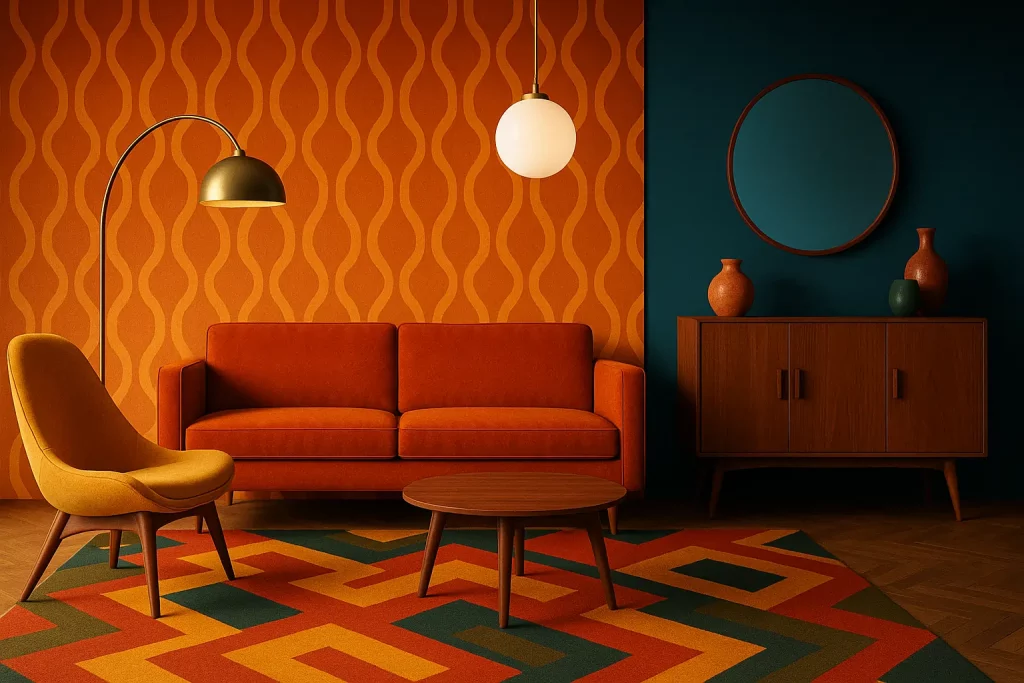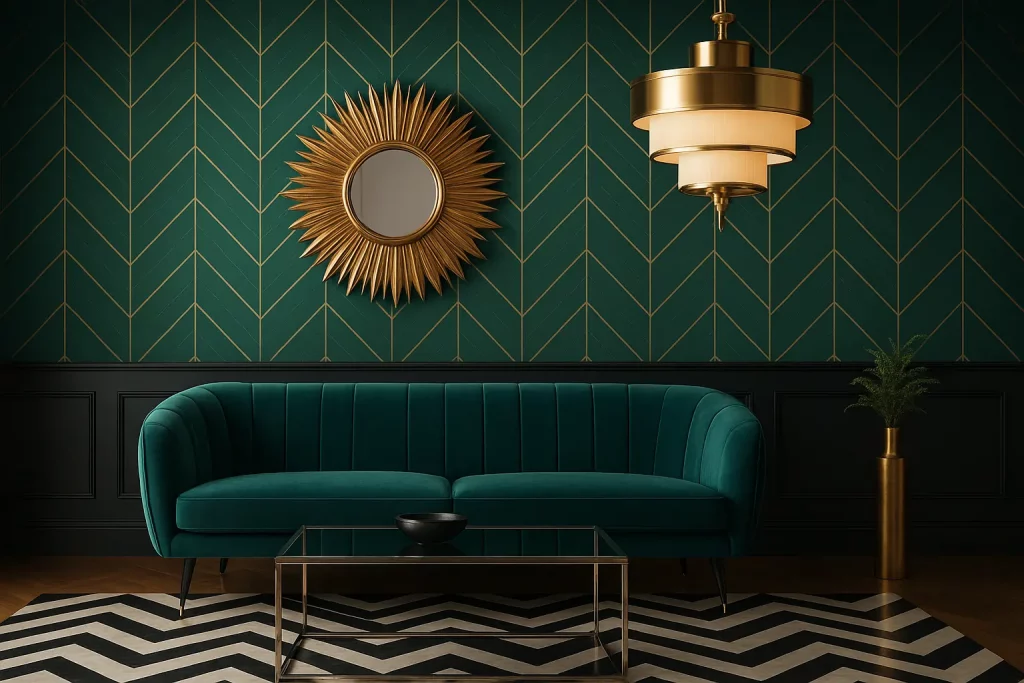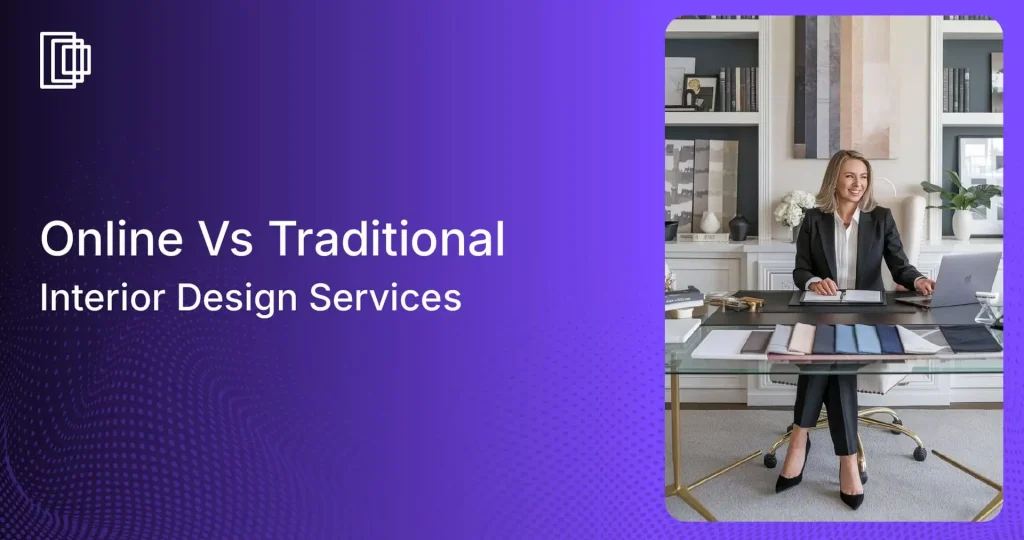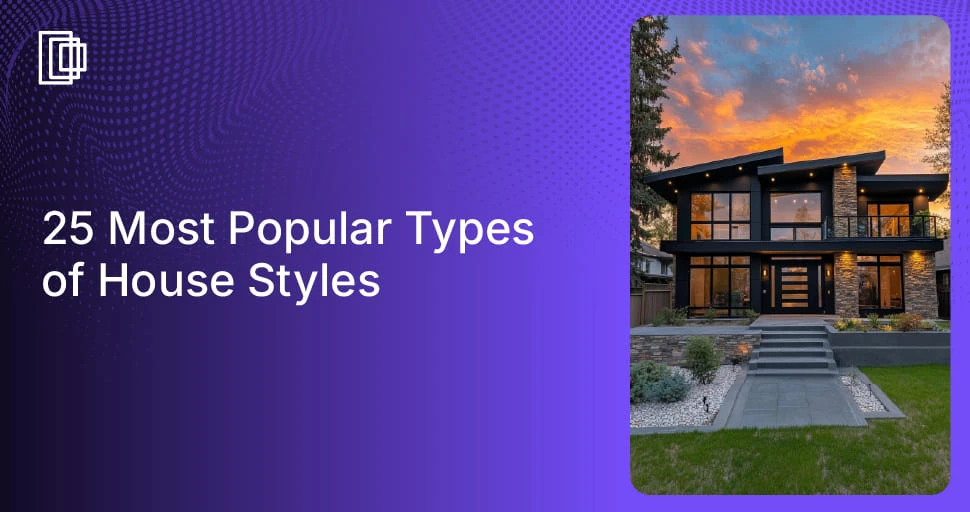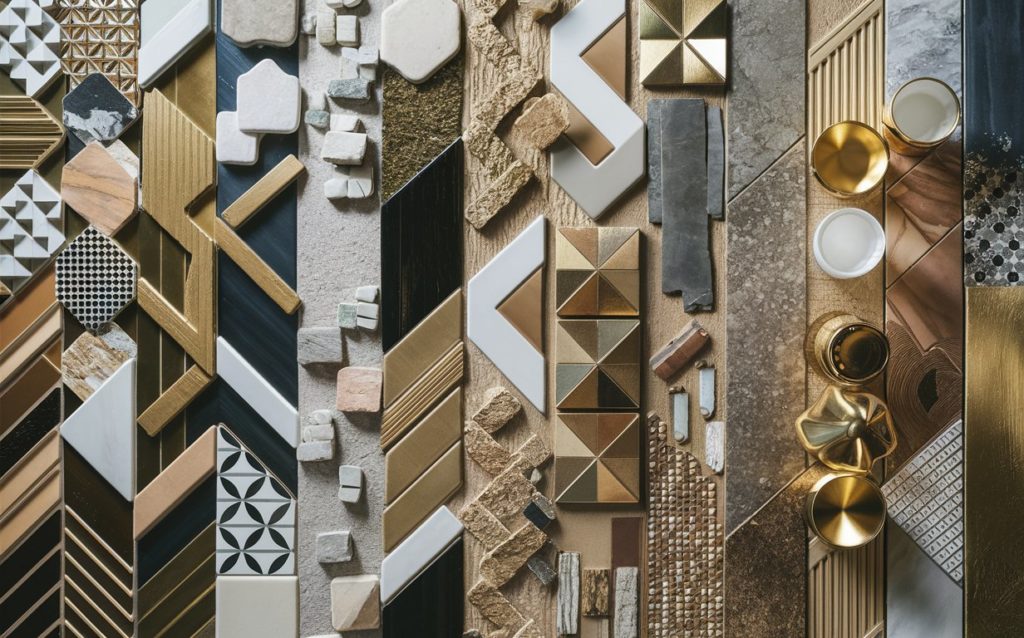Suppose you have been researching how to design your home’s interior. In that case, you probably have come across different home interior design styles such as “contemporary,” “modern”, “industrial”, “art deco”, and several others. Have you ever wondered what these terminologies actually mean?
For starters, these terms refer to different interior design styles, each with its unique characteristics, flavor, finish, and experience. While the interior design profession has existed for just over 100 years, the process of interior design, including the use of interior design software, has existed for as long as humans have been constructing homes and decorating them based on their needs and the materials available to them.
We are going to talk about various types of interior design styles that have managed to stand the test of time and are still used by people even today.
 Before proceeding further, check out this video of hottest interior design styles:
Before proceeding further, check out this video of hottest interior design styles:
23 Most Popular Types of Interior Design Styles
Here are the most popular interior design styles you can consider:
- Modern Interior Design Style
- Contemporary Interior Design Style
- Mid-Century Modern Interior Design Style
- Minimalist Interior Design Style
- Scandinavian Interior Design Style
- Eclectic Interior Design Style
- Industrial Interior Design Style
- Farmhouse Interior Design Style
- Art Deco Interior Design Style
- Bohemian (Boho) Interior Design Style
- Coastal Interior Design Style
- French Country Interior Design Style
- Hollywood Glam Interior Design Style
- Japandi Interior Design Style
- Mediterranean Interior Design Style
- Rustic Interior Design Style
- Traditional Interior Design Style
- Transitional Interior Design Style
- Maximalist Interior Design Style
- English Country Home Style
- Cottagecore Interior Design Style
- Grandmillennial Interior Design Style
- Moroccan Interior Design Style
Let’s explore each of these popular types of interior design styles in more detail.
1. Modern Interior Design Style
Modern design features clean lines, simple color schemes, and a welcoming feel, with heavy use of glass and steel. Black and white dominate the color palette, with some faded shades of blue and red. This style emphasizes functionality over form, with open floor plans and minimalist aesthetics that date back to the early 20th century.
You will love this if:
- You appreciate clean lines and uncluttered spaces
- You prefer neutral color schemes with occasional bold accents
- You value functionality and practicality in your living spaces
- You enjoy the timeless appeal of early 20th century design principles
2. Contemporary Interior Design Style
This fluid and ever-evolving style reflects the trends of the here and now. It feels fresh and current, often featuring open floor plans, neutral color schemes with bold accent colors, and an emphasis on eco-friendly materials and natural light.
You will love this if:
- You like to stay current with the latest design trends.
- You prefer open, airy spaces that feel spacious and bright.
- You enjoy a mostly neutral color palette punctuated by vibrant art or furniture.
- You appreciate furniture with clean lines and gentle curves.
Read also – 9 Best Contemporary Interior Design Ideas For Your Home
3. Mid-Century Interior Design Style
The mid-century interior design style was popular in the wake of the Second World War. It is known for its clean lines, organic shapes, and a seamless connection between indoors and outdoors. Key features include vibrant colors, iconic furniture pieces, and an emphasis on functionality.
You will love this if:
- You are a fan of the aesthetics of the 1950s and 1960s.
- You appreciate furniture that doubles as a sculptural work of art.
- You enjoy bringing natural elements and indoor plants into your home.
- You prefer open, social living spaces that encourage connection.
Hoeft Design Build highlighted Foyr Neo as their recommended tool for design-build contractors, stating:
“Foyr Neo empowers contractors to visualize and deliver exceptional designs, making it an indispensable tool in our process.”
Check out Full Article – Why Hoeft Design Build Recommends Foyr Neo
4. Minimalist Interior Design Style
This Australian-born style embodies the “less is more” philosophy. It feels calm, clean, and intentional. Neutral color palettes, simple and streamlined furnishings, and a complete lack of clutter characterize minimalism. Every item has a purpose and a place.
You will love this if:
- You believe a home should be a serene and uncluttered sanctuary.
- You are drawn to simple forms and functional, necessary furniture.
- You find beauty in a restrained and neutral color palette.
- You want to live a more intentional life with fewer possessions.
Read also – 9 Ways To Integrate Minimalist Interior Design Into Your Home
5. Scandinavian Interior Design Style
Originating from Nordic countries, Scandinavian design feels warm, cozy, and functional. It is a blend of minimalism and comfort, characterized by light neutral colors, natural materials like wood and wool, clean lines, and an emphasis on creating a warm, inviting atmosphere (hygge).
You will love this if:
- You love bright, light-filled spaces with a minimalist feel.
- You appreciate the beauty of natural materials and simple craftsmanship.
- You want your home to feel cozy, inviting, and comfortable.
- You believe good design elements should be both beautiful and affordable.
Read also – 9 Ways To Integrate Minimalist Interior Design Into Your Home
6. Eclectic Interior Design Style
Eclectic interior design thoughtfully combines ideas from diverse sources and eras. Rather than “anything goes,” this style requires careful planning to balance colors, textures, and multiple focal points. Walls typically remain simple to accommodate statement accessories, with recurring textures used throughout to create cohesion amid diversity.
You will love this if:
- You enjoy collecting unique pieces with personal meaning
- You appreciate the richness of combining different design eras
- You have a good eye for balancing diverse elements
- You want a home that tells your unique story through design
7. Industrial Interior Design Style
Inspired by urban lofts and old factories, this style feels raw, edgy, and unfinished. It highlights architectural elements that other styles try to conceal, like exposed brick, concrete floors, and raw timber beams. The look is minimal and functional.
You will love this if:
- You appreciate the beauty in raw, unfinished materials.
- You like open-concept living with high ceilings and large windows.
- You are drawn to a neutral color palette of grey, black, and white.
- You prefer functional, repurposed furniture with a vintage feel.
| Suzie Anderson, Interior Stylist & Retailer says, “The key to this design is about revealing all elements that most other styles try to hide, in terms of exposed bricks, concrete, raw hardwood beams, and iron rivets.” |
For flooring, consider concrete and recycled timber floorboards to maintain an authentic individual look, that can be softened with floor mats. Opt for lighting made from metal, and recycled glass with a combination of pendant lights, lamps, with wide and low-hanging shades.
Read also – Futuristic Interior Design
8. Farmhouse Interior Design Style
Farmhouse style creates a rustic, comfortable, and welcoming vibe, even in a city setting. It feels relaxed and chic, blending rustic countryside elements with modern touches. Key characteristics include natural materials, vintage accessories, and a focus on practical comfort.
You will love this if:
- You want your home to feel like a relaxing and comfortable retreat.
- You love incorporating natural and organic materials into your decor.
- You enjoy mixing old and new pieces to create a timeless look.
- You appreciate a practical and functional approach to design.
Read also – 7 Ways To Incorporate Steampunk Interior Design In Your Home
9. Art Deco Interior Design Style
Originating from 1920s France, this style is all about glamour, luxury, and opulence. It feels sophisticated and bold, marked by strong geometric patterns, rich colors, and lavish ornamentation. Look for jagged corners, large-scale furniture, and metallic finishes.
You will love this if:
- You believe more is more and are not afraid of bold design choices.
- You love the glamour and luxury of the Roaring Twenties.
- You are drawn to symmetrical arrangements and strong geometric shapes.
- You enjoy incorporating rich materials like polished wood and shiny metals.
Read also – A Guide To Art Deco Interior Design Style for Your Home
10. Boho – Bohemian Interior Design Style
The Boho interior design style is for the free-spirited and adventurous. It feels relaxed, eclectic, and grounded in nature. This look encourages a mix of patterns, textures, and colors from around the world, featuring natural materials, houseplants, and collected items from your travels.
You will love this if:
- Your motto is “anything goes” and you dislike strict design rules.
- You want your home to reflect your travels and cultural interests.
- You love a layered look with rich textures like woven rugs and macrame.
- You believe a home should be filled with lush plants and natural elements.
Read also – 8 Best Ways to Tell Your Story Through Interior Design
11. Coastal Interior Design Style
This style evokes the breezy, relaxed feeling of a beach vacation. It feels light, airy, and tranquil. Coastal design is characterized by a crisp, neutral palette (think white, beige, and light blues), natural materials like wood and jute, and beach-inspired decor.
You will love this if:
- You want to feel like you are on a permanent beach holiday.
- You love open, light-filled spaces that feel serene and calm.
- You are drawn to a color palette inspired by the sea and sky.
- You enjoy incorporating natural textures like linen, jute, and weathered wood.
12. French Country Interior Design Style
This style blends rustic farmhouse elements with sophisticated, antique details. It feels warm, elegant, and comfortable. Key characteristics include muted colors, patterned fabrics, distressed or antique furnishings, and natural materials like wood and stone to create a refined yet casual look.
You will love this if:
- You appreciate a look that is both elegant and casually inviting.
- You love antique furniture and decor with a sense of history.
- You are drawn to soft, warm colors and delicate floral patterns.
- You enjoy a blend of rustic charm and sophisticated details.
Read also – How To Find Your Personal Interior Design Style?
13. Hollywood Glam Interior Design Style
Popular since the mid-twentieth century, this style is a dramatic mix of Art Deco and Mid-Century Modern. It feels luxurious, glamorous, and complicated. Expect bold patterns, high-contrast color combinations, plush fabrics like velvet, and lots of metallic and mirrored accents.
You will love this if:
- You want your home to exude drama and high-end glamour.
- You are not afraid of bold, timeless patterns like geometrics or animal prints.
- You love luxurious textures such as velvet, suede, and lacquer.
- You appreciate high-contrast color palettes and shiny, reflective surfaces.
Read also – 12 Ways To Incorporate Wabi-Sabi Interior Design in Your Home
14. Japandi Interior Design Style
Japandi is a hybrid style that beautifully merges Scandinavian function with Japanese minimalism. The look and feel are minimalist, functional, and calming. It is characterized by clean lines, neutral color palettes, natural materials like bamboo, and a focus on craftsmanship.
You will love this if:
- You are torn between Scandinavian warmth and Japanese Zen aesthetics.
- You value simplicity, functionality, and high-quality craftsmanship.
- You prefer a calm, uncluttered space with a connection to nature.
- You enjoy a neutral and earthy color palette.
Read also – 9 Best Sustainable Architecture Design Ideas
15. Mediterranean Interior Design Style
Drawing inspiration from Greece, Spain, and Italy, this style feels warm, earthy, and romantic. It is recognized by its arches and columns, large windows with sheer curtains, and rich wood tones. The color palette reflects the sea and sky, with warm terracotta and yellow.
You will love this if:
- You want your home to feel like a sunny European villa.
- You appreciate architectural details like arches and exposed beams.
- You love warm, earthy color palettes inspired by nature.
- You enjoy sturdy, ornate furniture made from natural materials.
Read also – 10 Mediterranean Interior Design Decor Ideas
16. Rustic Interior Design Style
Inspired by the Romantic Movement, Rustic interior design celebrates the raw, unrefined beauty of nature. The style feels practical, minimal, and connected to the outdoors. It is defined by its use of natural and weathered finishes, raw wood, stone, and a central fireplace.
You will love this if:
- You want to bring the rugged beauty of the outdoors inside your home.
- You appreciate natural, organic, and weathered materials.
- You believe a fireplace is the true heart of a home.
- You prefer a simple, practical, and unpretentious design aesthetic.
Read also – 14 Best Rustic Bedroom Ideas
17. Traditional Interior Design Style
Taking cues from the 18th and 19th centuries, this is a timeless and orderly style. It feels classic, comfortable, and inviting. Traditional design emphasizes symmetry, with interiors that feature rich colors, elegant furnishings with curved lines, and intricate textiles.
You will love this if:
- You appreciate timeless elegance over modern trends.
- You love antiques, classic art, and pieces with a rich history.
- You prefer a sense of order, symmetry, and predictability in your decor.
- You want your home to feel warm, welcoming, and stately.
Read also – 30 Traditional Living Room Ideas
18. Transitional Interior Design Style
Transitional style offers the best of both worlds, blending the comfort of traditional design with the clean profiles of contemporary style. It feels classic yet current. The aesthetic balances masculine and feminine elements, using a neutral palette, metallic accents, and lots of texture.
You will love this if:
- You find traditional design too stuffy but contemporary too stark.
- You appreciate a sophisticated and serene aesthetic that is also comfortable.
- You enjoy a neutral color palette that is layered with interesting textures.
- You want a timeless look that is not tied to one specific design era.
Read also – Sustainable and Holistic Interior Design
19. Maximalist Interior Design Style
Maximalism is a celebration of “more is more.” It feels bold, vibrant, and deeply personal. This style is about layering colors, patterns, and cherished collections. It features bold wall colors, gallery walls, and an eclectic mix of comfortable furniture.
You will love this if:
- Minimalism feels boring and you prefer a space full of life and personality.
- You love bold colors, rich patterns, and mixing different styles.
- You are a collector and want to display your favorite objects and souvenirs.
- You believe your home should tell your unique story.
| Ania Sousa, Principal Interior Designer says, “The very first thing when it comes to maximalism is bringing in color. What I love about the maximalist style when it comes to color you can go from one extreme to another easily. You can even go for neutrals, and then bring in a splash of colors through fabrics, materials, and finishes.” |
20. English Country Home Style
This style exudes warmth, character, and a cozy, lived-in comfort. It feels charming and perfectly imperfect. The English Country look is defined by floral patterns, antique furniture, natural materials, and a whimsical mix of colors and textures for a welcoming feel.
You will love this if:
- You prioritize comfort and a warm, inviting atmosphere.
- You have a love for antique furniture that tells a story.
- You are not afraid to mix and match floral and striped patterns.
- You want your home to feel like a charming and timeless countryside retreat.
| Ashley Childers, a Home & Interiors Expert says, “Homes that adapt the English Country home design style exude warmth, character, and a timeless appeal and lead to cozy comfort. These homes are filled with darling florals, antique furniture and all perfectly imperfect charm you could ask for.” |
21. Cottagecore Interior Design Style
Cottagecore is a nostalgic and romantic aesthetic inspired by a simple, rural life. The style feels cozy, quaint, and handmade. It favors secondhand and reclaimed wood furniture, floral patterns, thick fabrics, and decor that evokes a traditional countryside cottage.
You will love this if:
- You dream of a simple, pastoral life away from modern hustle.
- You love the thrill of finding unique pieces at thrift stores and flea markets.
- You prefer furniture with soft curves and a lovingly worn-in look.
- You enjoy incorporating handmade items and dried flowers into your decor.
| Jacqueline Dantier, Co-founder & Interior Architect at Dantier + Balogh says, “Stay away from plastic and glass furniture of any kind when you’re going for a cottage-core design style, especially if they have sharp lines and look very minimal.” |
22. Grandmillennial Interior Design Style
This 21st-century style is a fresh take on “granny chic.” It feels layered, happy, and timeless. Grandmillennial design mixes traditional elements from your grandparents’ era with modern touches, featuring floral prints, antique furniture, ruffles, and intricately designed rugs.
You will love this if:
- You are an old soul who appreciates the design of past generations.
- You want to create a space that feels both cozy and sophisticated.
- You enjoy mixing traditional furniture styles like Victorian and Regency.
- You love layering patterns, from floral and fauna prints to gingham and checks.
23. Moroccan Interior Design Style
This style is an ornamental feast for the eyes, full of history, color, and craftsmanship. It feels exotic, vibrant, and fluid. Moroccan design is known for its bold colors, intricate geometric and tribal patterns, archways, and hand-carved wood furniture.
You will love this if:
- You want your home to feel like an exotic and vibrant escape.
- You love bold, jewel-toned colors like royal blue, red, and deep purple.
- You are captivated by intricate tilework and complex geometric patterns.
- You appreciate handcrafted furniture and plush textiles like poufs and ottomans.
| Alexandra Gater, Editor, Stylist, and Home Decor Expert from Toronto says, “Moroccan design is an ornamental visual feast with a burse of expression, craftsmanship, history and love.” |
Visualize Your Interior Design Style with Foyr
This is where you stop guessing and start designing. A powerful, easy-to-use online tool like Foyr Neo is your secret weapon. Instead of just hoping things will work together, you can:
- Build Your Room in Minutes: Quickly create a 2D floor plan of your exact room, then instantly convert it to 3D.
- Test Drive Any Style: Drag and drop furniture and decor from a massive library. You can experiment with a Mid-Century Modern sofa, then swap it for a comfy Farmhouse sectional to see which you prefer.
- Play with Colors and Textures: See how that bold Art Deco wallpaper actually looks on your feature wall before you commit.
- Get Photorealistic Renders: Generate stunning, life-like images of your design in minutes, so you know exactly what your finished room will look like.
It’s the ultimate creative sandbox, letting you bring any of the types of interior design styles we’ve talked about to life with zero risk.
Conclusion
Design styles are abundant and unique, so it is up to you to find the style that will work best for you. There is also the option of combining elements of several styles in order to get that personal touch.
Before commencing with your interior design plans, be sure to research deeper about each of the styles and how different they are from one another. Try Foy Neo for 14-day free trial to design your home with all these interior design styles.
FAQs
In which design style is symmetry a key element?
Classical interior design places a strong emphasis on symmetry and balance in its layout and furnishings.
What cultural influences are often seen in Global interior design?
Global design incorporates elements from various cultures worldwide, creating a diverse and well-traveled aesthetic.
How can I determine the right interior design style for a specific client?
Consider the client’s lifestyle, preferences, and the function of the space to align with a suitable design style.
Can a fusion of different interior design styles work well together in a single space?
Yes, but it requires careful consideration and expertise to blend styles harmoniously, ensuring a cohesive and balanced design.
How does the Biophilic interior design style incorporate elements of nature to enhance well-being?
Biophilic design integrates natural materials, greenery, and natural light to create a connection with nature, promoting well-being and comfort.
What are the 7 concepts of interior design?
The 7 core concepts of interior design are space, line, form, light, color, texture, and pattern. Together, they create balance and harmony in a room. Designers apply these principles across all types of interior design styles to achieve functionality, aesthetic appeal, and personalized comfort in interiors.
How many interior design styles are there?
There are more than 20 well-recognized types of interior design styles, ranging from modern, minimalist, and Scandinavian to rustic, farmhouse, and Moroccan. Each style offers distinct aesthetics and characteristics, but many designers also combine elements to create transitional or eclectic looks that suit individual preferences and modern lifestyles.
What is the most popular interior design?
Currently, modern and contemporary interior design styles are among the most popular due to their clean lines, neutral palettes, and functional approach. However, Scandinavian and farmhouse styles are also trending for their cozy, practical, and natural feel, making them favorites for modern homeowners seeking comfort with style.
What is the millennials style of home décor?
Millennials often lean toward transitional and minimalist interior design styles that balance aesthetics with functionality. They prefer open layouts, neutral tones with pops of color, and affordable yet stylish décor. Sustainability, multipurpose furniture, and DIY touches are also strong influences, creating homes that are practical, trendy, and eco-friendly.

Nichole Samuel
Interior Designer
Blog Reviewed By





